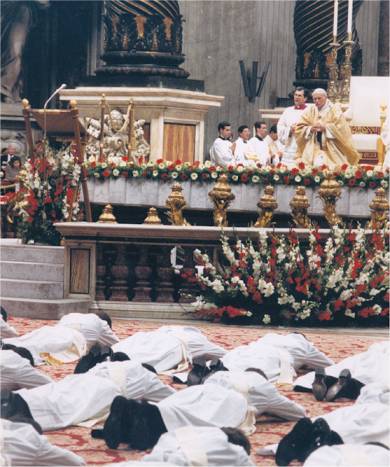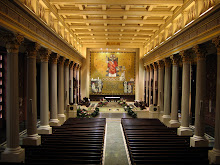First, Archbishop Schnurr has a great article on Immigration Reform that is not to be missed:
Snippet:
In response, I hope that I can offer some clarification about the church’s teaching and position on this issue. In addition, I pray that these reflections offer you some insights for your own grappling with this difficult and often controversial issue.
One of the fundamental principles behind any moral immigration system is that nations have the right to protect their own borders. Governments have a duty to achieve the common good of the citizens whom they represent. And, in turn, residents of any land have a duty to respect the rule of law. To that end, the U.S. bishops want to see to it that our country has an orderly process that sensibly regulates the flow of migrants and keeps us safe from threats of terrorism, violence, drug trafficking and other criminal activities.
At the same time, the Catholic Church also teaches that all human beings have a right to migrate. First and foremost, every one of us, as a child of God and regardless of our national affiliation, has a right to work to provide for ourselves and our family. Ideally, we should be able to find work in our own countries. However, if such work cannot be found at home, what choice do we have other than to go wherever we can find our livelihood? Any responsible person, charged with the holy work of sustaining life, our own life and the lives of our family members, has a right and duty to migrate if that is the only option.
So how does a nation responsibly balance the right and duty to protect our borders with the right and duty to migrate? How do we live up to the commands of Scripture, where God states, “The strangers who sojourn with you shall be to you as the natives among you, and you shall love them as yourself; for you were strangers in the land of Egypt” (Leviticus 19:33-34)? Remembering always that the Holy Family, fleeing persecution in its own land, was also a migrant family, how do we today unfurl the welcome mat to Christ present in the thousands of immigrants coming to the doorstep and still keep our own house orderly and safe?
It is first important to remind ourselves that most of the laws that define our system today did not even exist before the 20th century. Moreover, they have been amended and changed over time in order to seek this difficult balance.
Secondly, Fr. Earl Fernandes, Academic Dean at Mount St. Mary's stole the topic for my next article:
Snippet:
With respect to the teaching authority of the church’s magisterium, many overlook, or even resent, the pastoral chair, viewing the exercise of authority as “bullying” rather than serving. On June 29, the feast of Saints Peter and Paul, Archbishop Dennis Schnurr and other metropolitan archbishops will receive the pallium from the pontiff. The pallium is a liturgical vestment, woven of white lamb’s wool from sheep blessed by the pope.
The pallium is a reminder of the pastoral chair. The pallium is worn over the shoulders and is a symbol of the gentle yoke of Christ. The lamb’s wool of the pallium represents the lost, sick, or weak sheep whom the shepherd places on his shoulders and carries to the waters of life. The bishop who teaches what Christ taught leads those who have lost sight of the truth, who have grown sick through sin and false teaching and who have grown weak by being fed stones rather than bread, the path to life. Christ is not indifferent to His flock amid the false teaching of “wolves in sheep’s clothing.” Unlike shepherds who lead the sheep to the slaughter, Christ, the Good Shepherd, became a lamb, standing with the downtrodden with His prophetic voice and His challenging and authoritative teaching.
Christ’s love for His flock led Him to call the apostles to himself and to give them authority to preach and teach in His name. Our bishops today are successors to the apostles. It is Christ who established this hierarchy within His church for the worship of God and the care of God’s flock. The teaching of the magisterium, like that of Christ, does not seek to dominate and control but to lead us to life.
Is this teaching challenging at times? Of course, but without it, would we find the “waters of life” or be lost in the “desert?” Today some immediately view magisterial teaching with skepticism, voicing the opinion that it is oppressive. A better disposition might be to listen for the voice of the Good Shepherd in the teaching.
Make sure to read the entire articles.
Now, what do I write about......
Thursday, June 17, 2010
Subscribe to:
Post Comments (Atom)










No comments:
Post a Comment